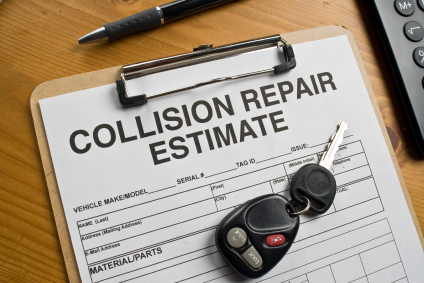What the insurance actuary does, how car insurance premiums are calculated and how discounts are added later.

It's dry work, but someone has to do it.
You get your car insurance bill every month and pay it without question. It’s what the agent said you’d pay, right? So you do it.
But have you ever thought about how those premiums are actually calculated? Who’s in charge of that, anyway? As it turns out, there is a department in the insurance company responsible for just that.
Imagine that.
Meet the Insurance Actuary
Auto insurance is a business heavily dependent on statistics. It therefore follows that a statistician is somewhere in the mix. Enter the insurance actuary. Like an adjuster, an actuary is an insurance company employee or third party contractor who is never an agent. Instead, he or she has a specific job for the company: analyze loss data and determine premium accordingly.
While it’s true that the insurance company board and the state insurance commission have to approve premiums, it’s nevertheless the actuary who has the most say in how much gets charged for car insurance. The actuary almost never interacts with the public and rarely gets a lot of credit, even among insurance agents, but the job he or she does has a profound impact on not only how much you pay for insurance, but ultimately on how much the agent makes in commission.
How Auto Insurance Premiums are Calculated
As the auto insurance industry has evolved over the past century or so, it has looked at more and more variables when it comes to pricing its premiums. Today it’s not unusual for auto insurance company actuaries to consider thousands of variables including varying degrees of age, geographic location, make, model and so on. This shouldn’t surprise many people.
In other words, an actuary will look at loss history in a particular county or ZIP code for a particular demographic driving a particular type of vehicle, and do it again and again. Yes, it’s dry work, but the insurance companies consider it absolutely vital. The same actuarial work, by the way, is also done for every other type of insurance, including homeowners, commercial, life and all other lines.
What might surprise people is that auto insurance companies only look at their own loss histories. In other words, State Farm isn’t concerned with the loss ratio seen at Farmers in a certain area, or vice versa. It’s therefore theoretically possible for rates to be significantly higher in one area for one company over another because one company experiences significantly higher losses. This is one reason why auto insurance rates are different from one company to another all other things equal.
How Discounts are Factored In
Actuaries work exclusively with a base premium calculated before any discounts are factored in. Given that in today’s competitive car insurance market just about everyone qualifies for at least one car insurance discount, it’s therefore unlikely you’ll actually pay what the actuary says you should. Car insurance companies know this and build the discounts around the actuarial premiums accordingly.
What the insurance actuary does, how car insurance premiums are calculated and how discounts are added later.
You get your car insurance bill every month and pay it without question. It’s what the agent said you’d pay, right? So you do it.
But have you ever thought about how those premiums are actually calculated? Who’s in charge of that, anyway? As it turns out, there is a department in the insurance company responsible for just that. Imagine that.
Meet the Insurance Actuary
Auto insurance is a business heavily dependent on statistics. It therefore follows that a statistician is somewhere in the mix. Enter the actuary. Like an adjuster, an actuary is an insurance company employee or third party contractor who is never an agent. Instead, he or she has a specific job for the company: analyze loss data and determine premium accordingly.
While it’s true that the insurance company board and the state insurance commission have to approve premiums, it’s nevertheless the actuary who has the most say in how much gets charged for car insurance. The actuary almost never interacts with the public and rarely gets a lot of credit, even among insurance agents, but the job he or she does has a profound impact on not only how much you pay for insurance, but ultimately on how much the agent makes in commission.
How Auto Insurance Premiums are Calculated
As the auto insurance industry has evolved over the past century or so, it has looked at more and more variables when it comes to pricing its premiums. Today it’s not unusual for auto insurance company actuaries to consider thousands of variables including varying degrees of age, geographic location, make, model and so on. This shouldn’t surprise many people.
In other words, an actuary will look at loss history in a particular county or ZIP code for a particular demographic driving a particular type of vehicle, and do it again and again. Yes, it’s dry work, but the insurance companies consider it absolutely vital. The same actuarial work, by the way, is also done for every other type of insurance, including homeowners, commercial, life and all other lines.
What might surprise people is that auto insurance companies only look at their own loss histories. In other words, State Farm isn’t concerned with the loss ratio seen at Farmers in a certain area, or vice versa. It’s therefore theoretically possible for rates to be significantly higher in one area for one company over another because one company experiences significantly higher losses. This is one reason why auto insurance rates are different from one company to another all other things equal.
How Discounts are Factored In
Actuaries work exclusively with a base premium calculated before any discounts are factored in. Given that in today’s competitive car insurance market just about everyone qualifies for at least one car insurance discount, it’s therefore unlikely you’ll actually pay what the actuary says you should. Car insurance companies know this and build the discounts around the actuarial premiums accordingly.





